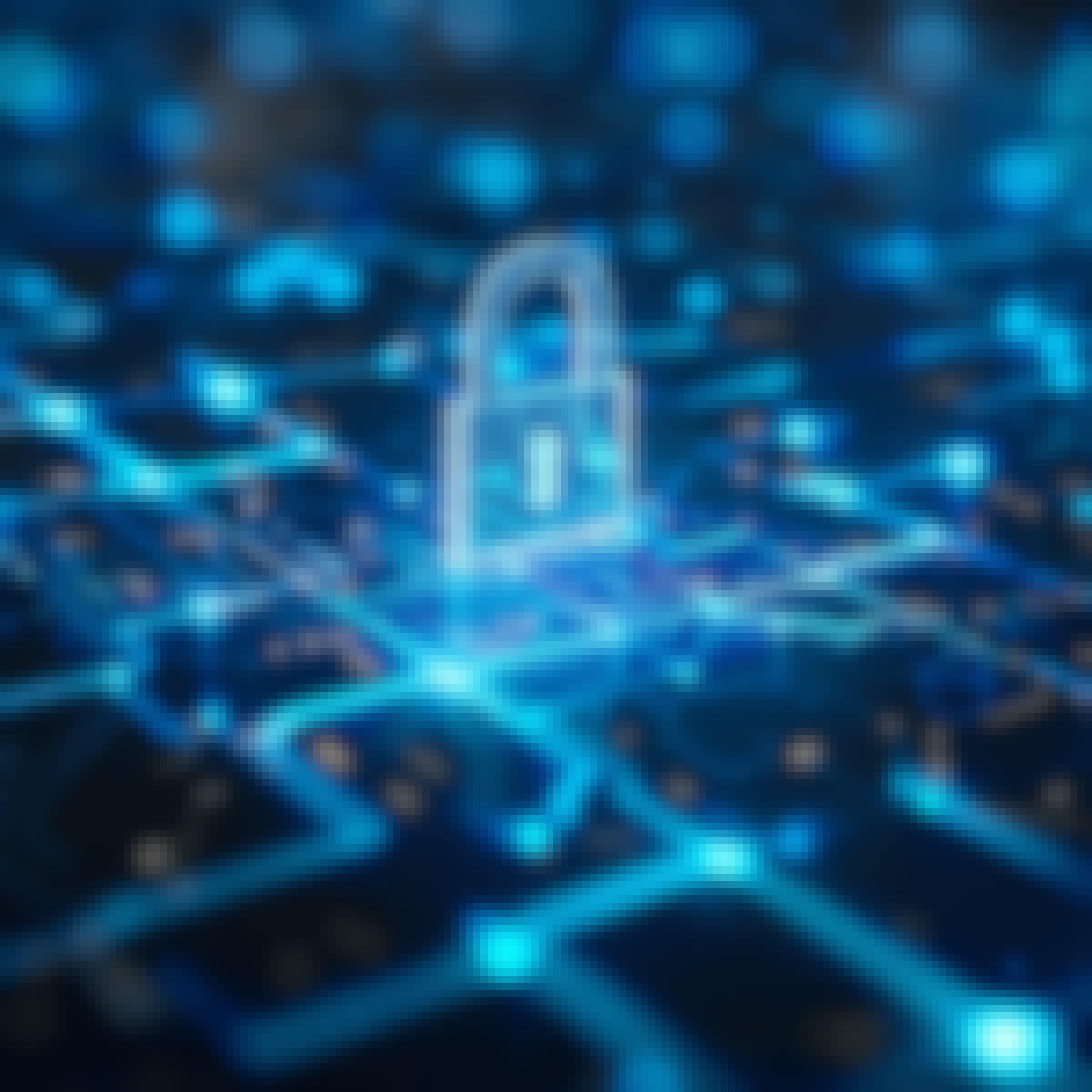Filter by
SubjectRequired
LanguageRequired
The language used throughout the course, in both instruction and assessments.
Learning ProductRequired
LevelRequired
DurationRequired
SkillsRequired
SubtitlesRequired
EducatorRequired
Find the Best Cybersecurity Course for Your Goals
 Status: Free Trial
Status: Free TrialSkills you'll gain: Software-Defined Networking, Network Security, Infrastructure Security, Computer Networking, Local Area Networks, Network Architecture, Network Infrastructure, Wide Area Networks, Virtualization, Scalability
 Status: Free Trial
Status: Free TrialSkills you'll gain: Cloud Security, Intrusion Detection and Prevention, Email Security, Incident Response, Application Security, Cloud Computing, Computer Security Incident Management, Cyber Attacks, Cyber Threat Intelligence, Threat Detection, Web Applications, Malware Protection, Network Security, Threat Management, Security Information and Event Management (SIEM), Network Monitoring

University of Michigan
Skills you'll gain: Computer Security Awareness Training, Application Security, Security Awareness, Cyber Attacks, Cybersecurity, Threat Modeling, Political Sciences, Public Policies, Vulnerability, Safety and Security, Human Factors, Technology Strategies, Emerging Technologies

Skills you'll gain: Cyber Risk, Cyber Security Strategy, Risk Mitigation, Risk Management Framework, Cybersecurity, Security Management, Risk Analysis, Security Strategy, Information Management, Law, Regulation, and Compliance, Financial Services, Data Security, Asset Protection, Business Continuity, Digital Assets
 Status: New
Status: NewPackt
Skills you'll gain: Vulnerability Scanning, Active Directory, Web Applications, Microsoft Windows, Intrusion Detection and Prevention, Cybersecurity, Bash (Scripting Language), Command-Line Interface, Apache Tomcat, Scripting, Unix Commands, Microsoft SQL Servers
 Status: NewStatus: Free Trial
Status: NewStatus: Free TrialSkills you'll gain: Vulnerability Management, Identity and Access Management, IT Security Architecture, Incident Response, Security Controls, Endpoint Security, Cloud Computing, Cybersecurity, Network Architecture, Data Security, Infrastructure Security, Mobile Security, Threat Detection, Firewall, Encryption, Virtual Private Networks (VPN)
 Status: New
Status: NewSkills you'll gain: System Configuration, Security Awareness, Mobile Security, Software Installation, Cybersecurity, Microsoft Windows, Command-Line Interface, Operating Systems, Desktop Support, Application Security, Mac OS, Unix, Unix Commands, Malware Protection, Network Administration, Network Troubleshooting, Network Support, Linux Commands, Hardware Troubleshooting, Firewall
 Status: New
Status: NewPackt
Skills you'll gain: Penetration Testing, Cyber Security Assessment, Vulnerability Assessments, Cyber Operations, Data Security, Cybersecurity, Test Tools, User Requirements Documents, Authorization (Computing), Technical Documentation, Computing Platforms, Requirements Analysis, Command-Line Interface, Technical Communication
 Status: New
Status: NewUniversidades Anáhuac
Skills you'll gain: Blockchain, Internet Of Things, Business Technologies, Emerging Technologies, Business Operations, Cryptography, Supply Chain Management, HR Tech, Business Process, Cybersecurity, Security Controls, Contract Management, Automation, Data Storage, Strategic Decision-Making
 Status: New
Status: NewInstitut Mines-Télécom
Skills you'll gain: Digital Communications, Emerging Technologies, Digital Transformation, Communication, Safety and Security, Persona (User Experience), Cyber Governance, Digital Content, Technology Strategies, Law, Regulation, and Compliance, Interaction Design, Cybersecurity, Artificial Intelligence, Identity and Access Management, Competitive Intelligence, Cultural Diversity, Innovation, Augmented and Virtual Reality (AR/VR), Ethical Standards And Conduct
 Status: Free Trial
Status: Free TrialSkills you'll gain: Threat Management, Threat Detection, Software-Defined Networking, Network Architecture, Network Planning And Design, Network Security, Cloud-Based Integration, Cloud Computing Architecture, Network Infrastructure, Internet Of Things, Multi-Cloud, Wide Area Networks, Technical Consulting, Scalability, Technology Solutions
 Status: New
Status: NewSkills you'll gain: AWS Identity and Access Management (IAM), Amazon Web Services, Penetration Testing, Cyber Security Assessment, Identity and Access Management, Vulnerability Assessments, Cloud Security, Amazon Elastic Compute Cloud, Application Security, Amazon S3, Command-Line Interface, Cloud Storage
In summary, here are 10 of our most popular cybersecurity courses
- Introduction to Software-Defined (SD) Branch: LearnQuest
- Advanced Incident Handling and Analysis Techniques: Packt
- 디지털 민주주의의 명암: University of Michigan
- Examina las bases de la ciberseguridad financiera: UBITS
- Hands-on Hacking: Packt
- Security Architecture & Operations: Packt
- CompTIA A+ Core 2 (220-1102): Packt
- Practical Pentesting : Packt
- Blockchain Aplicado a los Negocios: Universidades Anáhuac
- Digital Intelligence for the Common Good: Institut Mines-Télécom










